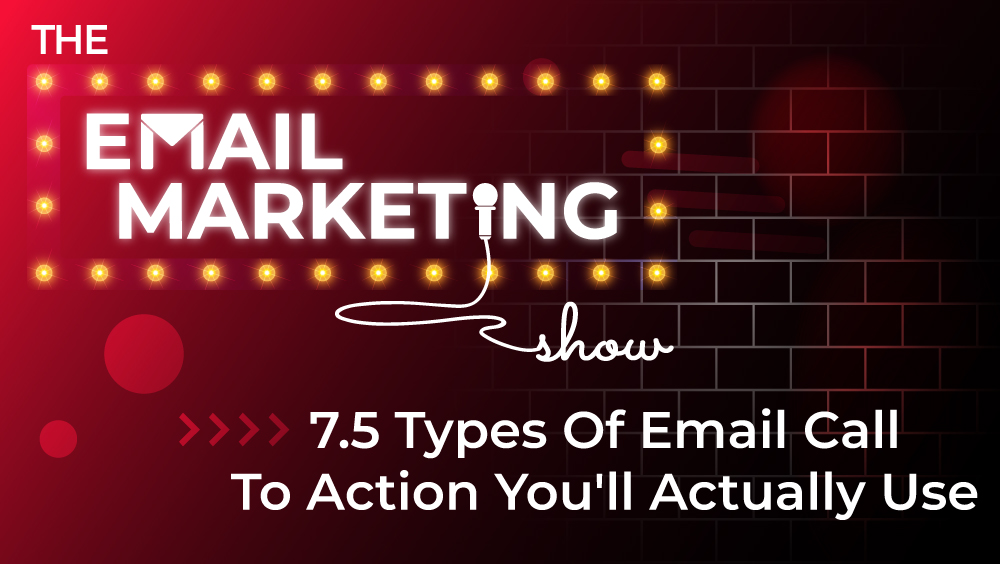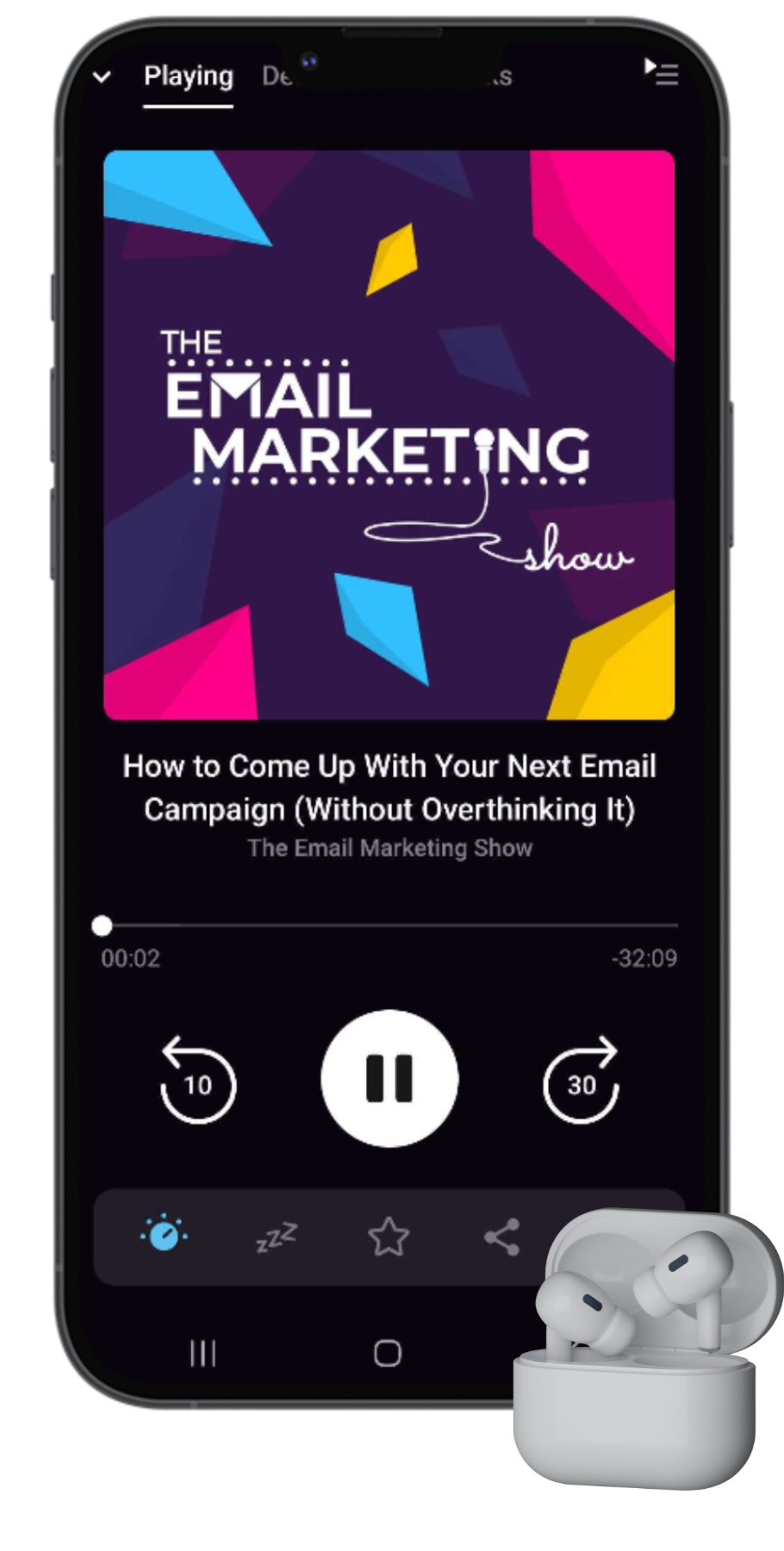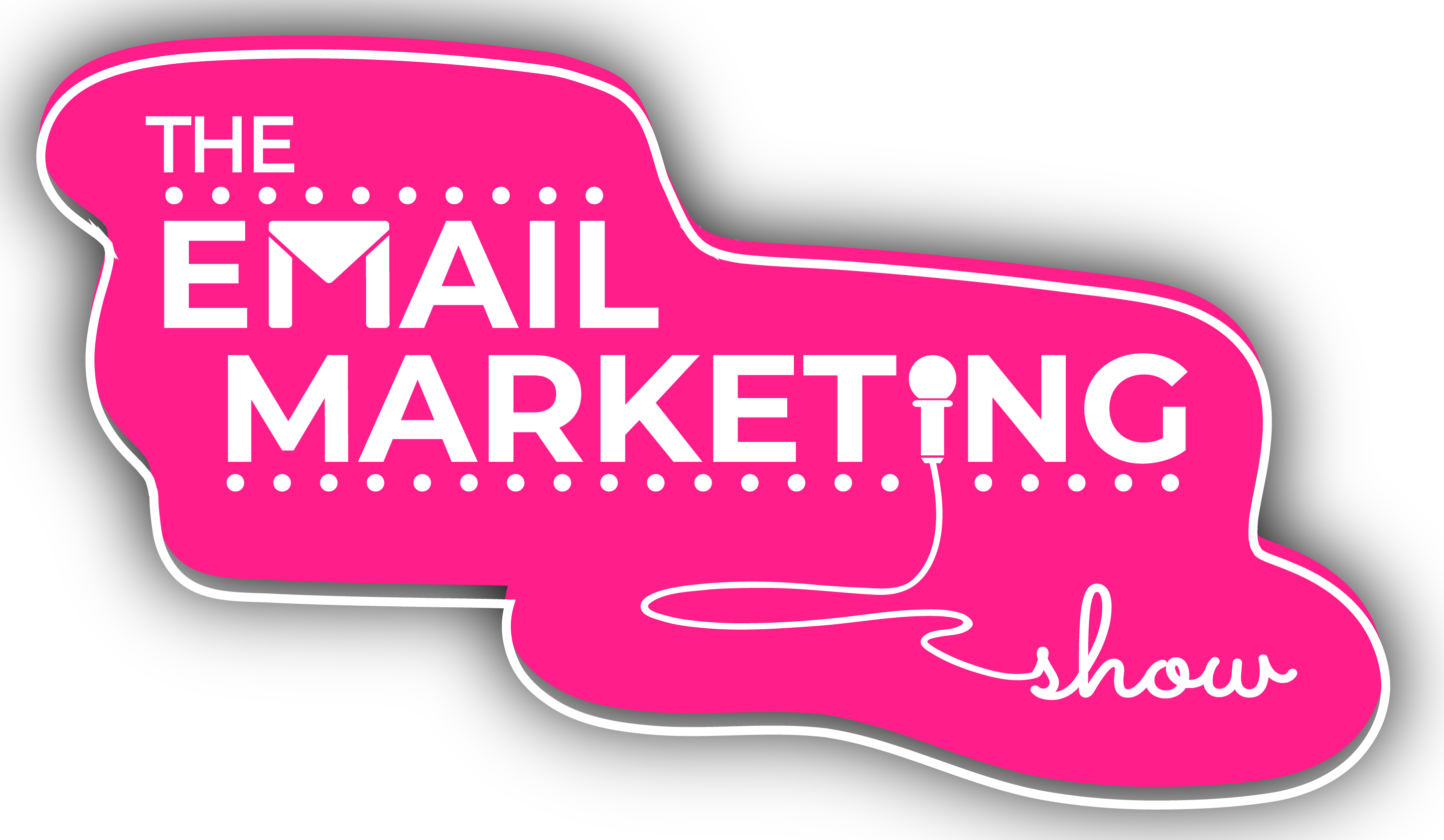
7.5 Types Of Email Call To Action You’ll Actually Use
One of the really tricky parts of creating email content is how to effectively use the same call to action over and over again without it becoming bland.
When you put an email together one of the most important things to do is make sure you have a single purpose, the one thing that you want people to do. We’ve moved on from the days where you can just send out a good looking email and get results, you’ve got to have an intention if you want to have a return on investment for building and hosting your email list.
Good job we've put together a list of ways to format your call to action (plus a nifty freebie)…
#1: The Naked Link
There’s something quite refreshing about using a naked link in your emails as a call to action, just quite literally dropping in the full link, naked and proud.
We live in a digital age where people’s trust is at an all-time low (thanks internet scammers) so sometimes it’s actually an advantage for people to see exactly where they’re going to end up if they click on your link.
#2: The Video Screenshot
If you’re sending people a link to go and watch a piece of content, either on YouTube or on your blog etc, just grab a screenshot of the video and put it in your email as an image.
You can then make that image a link to your video content and usually if there’s a video screenshot with a big play button in the middle of it, people just can’t help their curiosity getting the better of them and clicking to watch.
Bonus tip: Don’t spend hours looking for the perfect screenshot where you look picture-perfect, in fact, if you’re looking a bit daft or natural in the screenshot people are more likely to click.

#3: Call To Action Text
Instead of having the naked URL, the hyperlink text would say ‘click here’ or ‘watch here’, or whatever you need it to say, then the full URL is actually just hidden behind that link. You’ll have seen it loads of times, but it can be a really good way of instructing people to actually click the link.
It can be made more effective by using a good variation of wording and switching it up regularly. So that people don’t become blind to your call to action. In fact, to make this bit super easy for you we’ve put together a free download – 10 Interesting Ways To Say ‘Click Here’…
#4: Call To Action Buttons
Most email marketing services let you build a button right inside your email, but if not you can make one and drop it in as an image and then make that your call to action link.
Buttons are great for things like webinar registrations, for confirmation emails and calendar bookings, or for e-commerce businesses, because those audiences are already used to clicking buttons to get them what they want.
#5: Anchor Text
This one is very similar to ‘Call To Action Text’ but instead, anchor text is when you use existing words in a sentence to create the link. Anchor text is context-driven and placed somewhere naturally fitting in the email content.
Example:
‘We published a brand spanking new blog post this week that we think you would really enjoy.’
#6: The Fake Personal Link
The idea of this one is that it contains something personal to the email reader, such as their name or location, which piques their curiosity enough to make them click the link.
You would create a link that appears in the email to contain a personal detail about someone, for example:
www.responsesuite.com/video/rob
The great thing about this is that it’s so easy to create with merge tags, simply create your URL link and then add the merge tag onto the end. Of course, the real link behind the call to action will be the same for everyone.
#7: Implementation Prompts
Sometimes if you’re doing a content-heavy email, as part of that you might tell people to go and implement the thing, you’re telling them to do in your content. This type of call to action put the focus on them instead of you.
As a bonus piece of engagement content, you might ask them to share their implementation with you and your audience. If you can get people to share and tag you on social media or even just reply to your email, then happy days!
#7.5: Just Hit Reply
It's as simple as you think, ask them to reply!
If you can get your email readers to hit reply and open a dialogue with you, there are so many things you can do with that gem of an action. You can discuss objections, answer specific questions, get across more personality, build trust and loyalty quickly, the list of benefits is endless and it's such a simple call to action.

Listeners Question
I would love to know what you think is the best way to keep your audience interested in your email newsletters, so that they keep opening them time and time again?
Hollie, Hollie Ellis Design
Rob: I think the first thing to bear in mind is that your subscribers are subscribing to you today and that very quickly they will start to forget who you are and why they subscribed in the first place. So, the first thing that you need to do in order to start handling that is to create some sort of engagement and interaction with them quickly. Try to get them to reply to an email early on by asking them a relevant question, from a technical point this will help you get better delivery, and psychologically it’s creating a good connection.
Kennedy: At the end of every email or broadcast, open a loop with the reader. What we tend to do at the end of every email that we send is completely end the thought in their head, instead what we want to do is end the email content with something that will open a loop and raise questions in their head. Once they become curious, they are more likely to keep opening your emails to find out if you answer those questions.
If you have an email marketing question you would love us to answer you can submit it right here.





